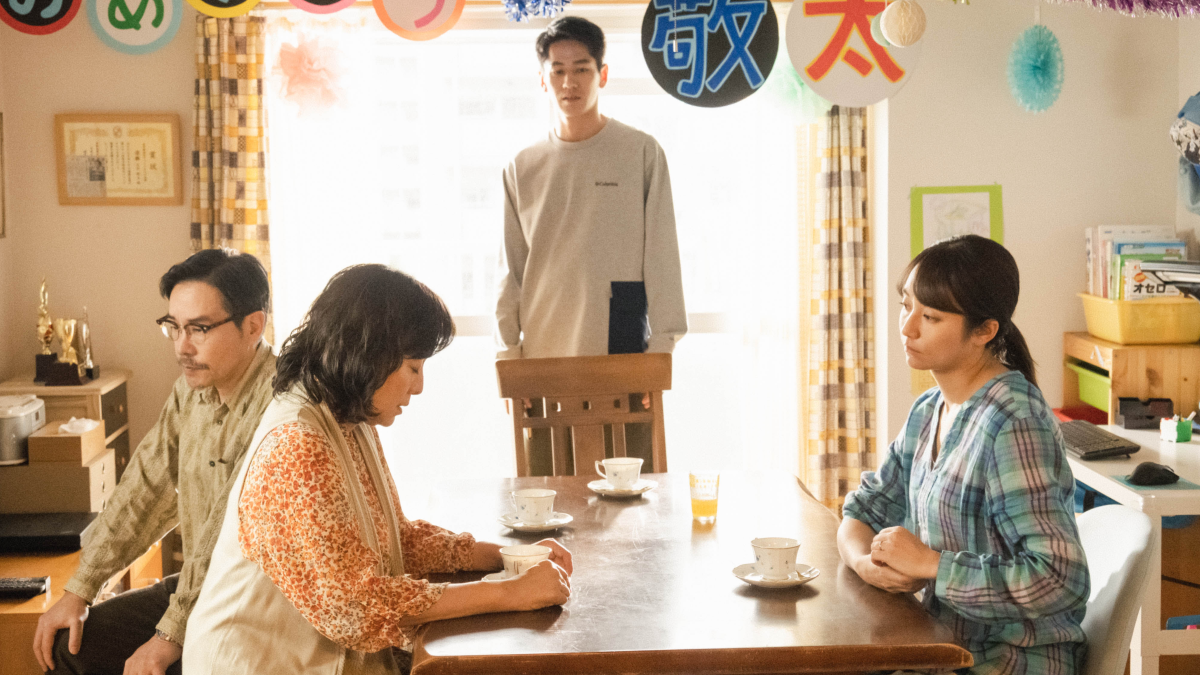It’s tough to really get under the skin of the characters that Japanese filmmaker Fukada dishes out of his seemingly distant personality. Much like his previous efforts, particularly the 2016 drama Harmonium and the more recent A Girl Missing (2019), Love Life (2023) is a narrative that feels fractured and moving in equal measures. His characters are opaque, and their actions are equally uncertain. This gives him a kind of liberation that turns these slice-of-life stories into a more profound and probing investigation of the human condition.
With Love Life, which is inspired by a 1991 song of the same name by Akiko Yano, Fukada introduces us to Taeko (Fumino Kimura), her husband Jiro (Kent Nagayama), and their evidently perfect existence with their young child Keita (Tetta Shivada). However, it doesn’t take long for us to see the cracks in this relationship between the husband and wife.
This is Taeko’s second marriage, and Jiro’s super-traditional parents have had a hard time accepting her. When the film opens with the couple going all the way to organize a surprise birthday party for Jiro’s uptight father, we can feel the tension brimming within. However, Fukada’s deliberate choice of making things feel muted still gives it a gentle, slow-burn approach. That is until he pulls the rug from under your feet, leaving everyone, along with the audience, in a state of shock and dismay.
I mean, how would anyone react to the loss of a child? Fukada is not interested in that reaction. Rather, he is interested in the unpredictability that it instills in a parent who has just lost a huge part of their existence – the only part they can truly associate with love itself.

The loss brings back Taeko’s ex-husband – the deaf, sick, and homeless Park (Atom Sunada) back into her life, and so begins a motion of push and pull that Taeko’s bewildering life cannot fathom. In some ways, director Fukada is interested in the strangeness of grief; the first act post the tragedy is all about Taeko’s guilt, where she considers herself at fault for her son slipping in the bathtub and drowning because she forgot to drain it. However, in spite of all operatives of a melodrama present, Fukada doesn’t needly jump to the phase of moving on.
Love Life constantly looks at the uncertainty that these characters have among themselves and between each other. The predictability of this unpredictability has actually become the central plot progressing mechanism in all of Fukada’s work, and his latest film just makes it a little more concrete.
It doesn’t mean that this is without flaws; the fractured feeling of being an outsider in someone else’s story and not completely engaging with it is still present, but Love Life moves you in strange ways. It makes you aware of the messiness of half-done things, the incompleteness that they leave you with, and the half-truths that we need to live with.
When Taeko decides to walk away with Park, knowing of his history of lies, we wish for her to have a better outcome; however, when she dances in the rain all alone, the sadness of life’s harshness washes over us. Moments like these make the tale feel unique and worth sitting through. So, in spite of the distant and stilted turns, I’d recommend you the film wholeheartedly.


